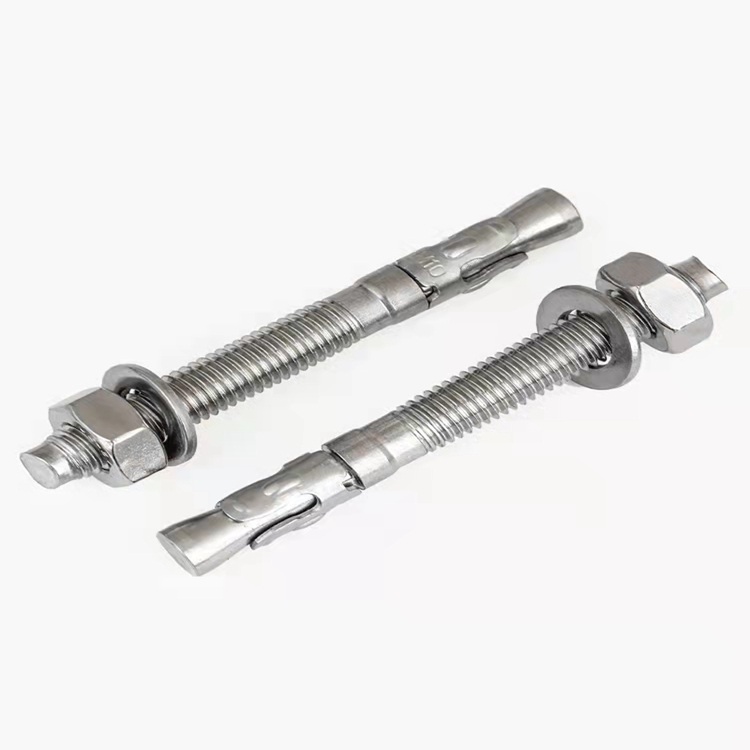Premium Muffler Stud Bolt Replacement Part for Enhanced Performance and Durability
Dec . 04, 2024 16:50 Back to list
Premium Muffler Stud Bolt Replacement Part for Enhanced Performance and Durability
The Importance of High-Quality Muffler Stud Bolts in Automotive Engineering
When discussing vital components of automotive engineering, muffler stud bolts might not be the first item that comes to mind. However, their importance cannot be overstated. Among these, the high-quality muffler stud bolt, specifically the part numbered 2663433, is emblematic of the engineering precision and durability needed in modern vehicles. This article explores the critical role of muffler stud bolts, the factors contributing to their quality, and how high-quality variants can significantly enhance vehicle performance and longevity.
Understanding Muffler Stud Bolts
Muffler stud bolts are fasteners that secure the muffler to the exhaust system of a vehicle. They play a crucial role in maintaining the integrity of the exhaust system, ensuring that emissions are properly directed out of the vehicle, thereby reducing noise and pollution. These bolts face immense stress from vibrations, heat, and environmental factors, making their quality paramount. A failure in this small component can lead to significant issues, including exhaust leaks, increased noise, and even engine damage.
Why Choose High-Quality Muffler Stud Bolts?
1. Durability and Resistance to Corrosion High-quality muffler stud bolts, such as the 2663433, are typically made from advanced alloys and treated to resist corrosion. Given that muffler systems are often exposed to moisture, road salt, and other corrosive elements, using bolts that can withstand these conditions is essential. Corrosion can weaken bolts, leading to failure over time, which can become costly as it often requires extensive repairs.
2. Precision Engineering Quality manufacturing processes ensure that high-quality studs are made with precision. This precision is vital for the proper fitting of the components involved. A snug fit prevents exhaust leaks which, if allowed to occur, can lead to decreased engine performance and increased emissions. Professionally crafted muffler stud bolts enhance the overall efficiency and performance of the exhaust system.
high quality muffler stud bolt 2663433

3. Resistance to Heat The exhaust system operates at high temperatures, and thus, the materials used for muffler stud bolts must withstand thermal expansion. High-quality products, like the 2663433, are engineered to endure these temperature fluctuations without warping or losing their structural integrity. This resistance is crucial for maintaining a secure connection over time.
4. Cost-Effective in the Long Run Although high-quality muffler stud bolts may come with a higher upfront cost, they offer greater value in the long run. Lower-quality bolts can require more frequent replacements, leading to increased labor and material costs. Investing in high-quality options minimizes the need for repeated service, ultimately saving both time and money.
5. Enhanced Vehicle Performance A well-fitted exhaust system contributes to overall vehicle performance. Engines perform most efficiently when exhaust gas flow is optimal, which directly affects fuel efficiency and power output. High-quality muffler stud bolts ensure that the exhaust system remains intact, maintaining proper flow and supporting better engine performance.
Conclusion
In the realm of automotive engineering, seemingly minor components often play critical roles in overall performance and safety. Muffler stud bolts, particularly high-quality variants like the 2663433, exemplify this notion. Their durability against corrosion, precision fit, heat resistance, and long-term cost-effectiveness render them indispensable in modern vehicles. As automotive technology progresses, ensuring that every component meets high standards of quality becomes paramount.
Investing in quality parts may seem like a trivial decision to some, but it significantly impacts safety, performance, and the longevity of vehicles. For those looking to maintain or improve their vehicles' performance, prioritizing high-quality muffler stud bolts is not just a recommendation; it is a necessity. Ultimately, the message is clear in automotive engineering, quality matters, and the small components that hold the system together deserve careful consideration.
Latest news
-
Durable Bolts for Lawn Mower Handle - Top Supplier & Manufacturer
NewsAug.22,2025
-
High-Quality Bolts for Lawn Mower Handle Supplier & Manufacturer
NewsAug.21,2025
-
Reliable Axle Nuts Supplier | High-Quality Automotive Parts
NewsAug.19,2025
-
Premium Wire Bolts Suppliers | Durable & Reliable Fasteners
NewsAug.18,2025
-
Leading Metric Wood Screw Companies & Manufacturers
NewsAug.17,2025
-
Top Wire Bolts Suppliers - Quality & Durable Fasteners
NewsAug.15,2025
